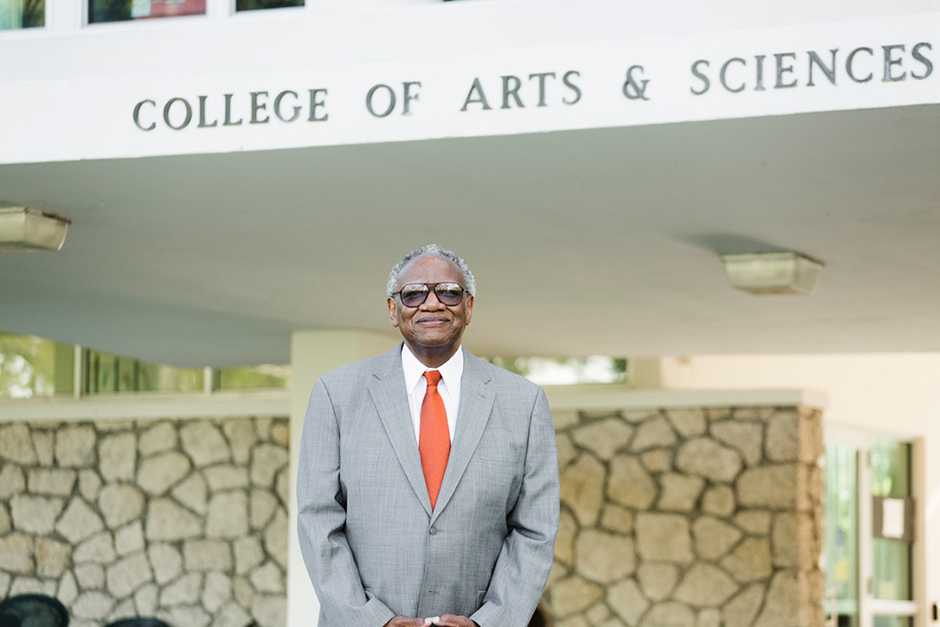Donald Spivey, Distinguished Professor of History and Cooper Fellow of the College of Arts & Sciences, has received the Faculty Senate’s Outstanding Teaching Award. An educator at UM for the past 25 years, Spivey teaches courses on late 19th and 20th century America, with a specialization in African-American history, sport, labor, music, and education. Born and raised in Chicago, Spivey attended the University of Illinois at Urbana-Champaign where he received his B.A. in 1971 and M.A. in history in 1972. He went on to earn his Ph.D. in history from the University of California at Davis in 1976.
Q. How did you feel when you received news about winning the Faculty Senate’s Outstanding Teaching Award?
A. When Faculty Senate Chair Dr. Tomas Salerno called me at home to give me the good news, he caught me completely off guard. After I regained my power of speech, I offered the Senators my heartfelt thanks. In short, I felt stunned, jubilant, humble, and grateful to the Faculty Senate for seeing fit to bestow on me such a great honor. It felt even better after I went out and purchased a nice bottle of champagne, which my wife and I drank that evening in celebration.
Q. You have received numerous recognitions over the course of your career as an educator, what makes this award different from previous ones?
A. This award is different because it is from the representative body of the faculty of the University of Miami. As you noted, I have received some other awards for teaching, but none come close to this one—this is “the” award for teaching. I could not be prouder.
Q. Have you thought about the kind of impact you are making on students at UM?
A. You are never sure of the impact you make on the students. You do occasionally hear from some of them and that is especially nice. What I am most proud of is being entrusted with a part of the learning experience of thousands of UM students who have gone on to successful careers in every field.
Q. Your team-taught course, “The Sixties,” is very popular at UM. Why do you think this decade in American history connects with today’s students?
A. Many of the students probably heard from parents or grandparents about “The Sixties,” and this gives them a chance to experience a bit of it. The team-taught course on “The Sixties” is such a great success because of the many faculty and staff who lend their expertise and experiences to help bring the period to life. The Sixties were such rich, vibrant, and tumultuous years that we can basically let the issues speak for themselves. And the period speaks in a loud and clear voice from protests and demonstrations, to personal sacrifices, war, and peace. If the stories from this era don’t move you, you should check your pulse because you must be intellectually dead.
Q. Who has inspired you and why?
A. My grandmother. She loved education and taught grammar school in the Jim Crow South. She was a teacher although she had only an eighth-grade education. That was considered enough education for a black person to be qualified to teach black children in rural Mississippi in the early 20th century. She knew that education was the key to success. Although college was denied to her, it was not denied to her grandson. Any time I feel like going a little easy in the classroom, I remember her and challenge my students to give their best effort—to read and to make learning their top priority. My grandmother would have cried tears of joy at me receiving the award for outstanding teaching.

